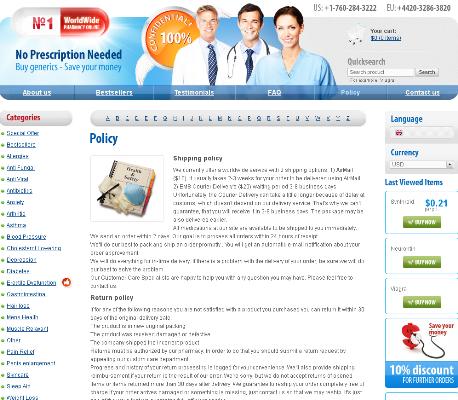Lopressor Dosage: What Patients Need to Know
Understanding What Lopressor Is and How It Works
Lopressor, also known by its generic name metoprolol, is a widely prescribed medication used to manage high blood pressure, chest pain (angina), and various heart conditions. As a beta blocker, Lopressor works by slowing down your heart rate and relaxing blood vessels, making it easier for your heart to pump and reducing its workload. By improving blood flow, it helps prevent complications like stroke and heart attack, making it an essential tool for patients with cardiovascular issues.
The effects of Lopressor are usually felt within an hour of taking your dose, and its benefits can be long-lasting with regular use. Understanding how this medication interacts with your body can empower you to follow your prescribed treatment plan and maintain open communication with your healthcare team.
| Brand Name | Generic Name | Drug Class | Main Uses |
|---|---|---|---|
| Lopressor | Metoprolol | Beta Blocker | High blood pressure, angina, heart conditions |
Typical Dosage Ranges for Adults and Children

When starting lopressor, adults are often prescribed an initial dose based on their specific condition—commonly, 100 mg per day split into smaller doses, though some begin with less. Doctors carefully adjust this amount, sometimes up to 450 mg daily, to ensure blood pressure or heart rate improves without unwanted side effects. Children, in contrast, require even more tailored dosing, calculated by weight and medical need, making their regimen more precise.
It's important to remember that individual response to lopressor can vary widely. Never adjust the dose without consulting your healthcare provider, and keep regular follow-ups to track progress and possible adjustments for safety and effectiveness.
Factors Influencing Your Personalized Lopressor Dose
No two patients are exactly alike, which is why doctors tailor lopressor doses to individual needs. Age can play a key role—for instance, older adults may require a lower starting dose to reduce the risk of side effects. Your overall health is just as important; conditions like liver disease, kidney problems, or heart failure can all influence how your body processes lopressor.
Other medications you’re taking also matter. Some drugs can interact with lopressor, either boosting its effect or making it less effective. In addition, your response to the medication will guide any dose adjustments. By keeping these factors in mind and maintaining open communication with your healthcare provider, you can help ensure your lopressor therapy is safe, effective, and tailored for you.
What to Do If You Miss a Dose

Life happens—even the most organized person can forget a dose of Lopressor sometimes. If you realize you’ve missed your medication, take it as soon as you remember unless it’s almost time for your next scheduled dose. In that case, it’s safer to skip the missed tablet rather than double up, which could lead to low blood pressure or a slowed heart rate. This careful approach helps maintain your body’s balance and avoids unintended side effects.
Consistency is paramount with Lopressor, so try to tie your doses to a daily routine, like brushing your teeth or eating breakfast, to help you remember. If missed doses happen frequently, discuss it with your healthcare provider—they may suggest strategies or reminders to keep your treatment on track. Never abruptly stop taking Lopressor without your doctor’s guidance.
Recognizing Signs of Too Much or Too Little
If your Lopressor dose is too high, you might experience symptoms like an unusually slow heartbeat, dizziness, fainting, or even shortness of breath—these can signal low blood pressure. On the other hand, if your dose is too little, you may notice persistent high blood pressure, chest pain, or a racing heart. It’s crucial to listen to your body and communicate any changes to your doctor promptly.
Here’s a quick guide to common warning signs:
| Too Much Lopressor | Too Little Lopressor |
|---|---|
| Bradycardia (slow pulse) | Increased blood pressure |
| Severe fatigue | Chest pain |
| Fainting or dizziness | Fast or irregular heartbeat |
Tips for Taking Lopressor Safely and Effectively
Taking Lopressor with care can make a significant difference in how well it manages your condition. Consistency is key: try to take your dose at the same time every day, with or right after food, to enhance absorption and minimize side effects. Always swallow the tablet whole with a glass of water rather than crushing or chewing it.
Keep a medication diary or use a smartphone reminder to help you remember each dose, especially if you take other medicines. It’s vital to inform your healthcare provider about all medications, supplements, or herbal products you’re using, as interactions with Lopressor can alter its effectiveness or increase side effects. If you feel dizzy or unusually tired, avoid activities requiring alertness until you know how the medication affects you.

